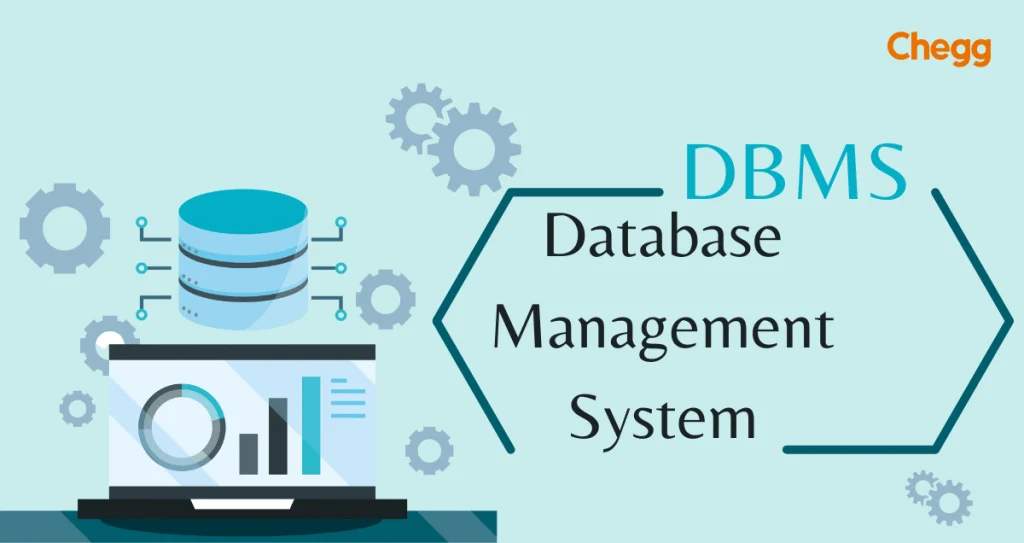If you have ever worked with computer systems, you might have encountered the term “DBMS.” It’s an essential term used in computer science, and if you’re new to this field, you might be wondering what it stands for. This article will discuss the full form of DBMS and what it means. Here, we are talking about What is the full form of DBMS?

Here we are talking about What is the full form of DBMS:
What is DBMS?
DBMS stands for “Database Management System.” It is a software system that is used to manage and organize data. The DBMS allows users to store, retrieve, and update data in a database. It is an integral part of most modern software applications and efficiently handles large amounts of data. DBMS is designed to provide a framework for organizing and managing data efficiently, securely, and quickly. It comprises programs enabling users to create, modify, and delete databases and their associated data. DBMS provides data backup and recovery tools, import and export, and security.
Types of DBMS
There are several types of DBMS available, including:
- Relational Database Management System (RDBMS)
- Object-Oriented Database Management System (OODBMS)
- Hierarchical Database Management System (HDBMS)
- Network Database Management System (NDBMS)
RDBMS is the most commonly used type of DBMS. It organizes data in tables that are related to each other using keys. OODBMS manages complex data types, such as images and audio. HDBMS organizes data in a tree-like structure, and NDBMS organizes data in a network structure.
Full Form of DBMS
The full form of DBMS is “Database Management System.” As discussed earlier, it is a software system that manages and organizes data. The term “database” refers to a collection of data that is stored in a structured manner. The DBMS provides a framework for managing this data, which includes creating, modifying, and deleting databases and their associated data.
Advantages of DBMS
DBMS has several advantages, including:
- Data Security: DBMS provides tools for securing data, including access control, encryption, and backup and recovery features.
- Data Consistency: DBMS ensures that data is consistent by enforcing rules and constraints on the data.
- Data Integrity: DBMS ensures data is accurate and consistent by providing data validation and verification mechanisms.
- Improved Efficiency: DBMS allows users to access and manipulate data quickly and easily, which improves efficiency and productivity.
- Scalability: DBMS can handle large amounts of data, making it scalable for growing businesses.
FAQs
What is the full form of DBMS?
DBMS stands for “Database Management System.”
What is a Database Management System (DBMS)?
A DBMS software system allows users to define, create, maintain, and manage databases. It provides an interface between the database and the end-users or applications.
What are the main functions of a DBMS?
The main functions of a DBMS include data storage, data retrieval, data manipulation (such as adding, modifying, or deleting data), data security, concurrency control, and data integrity management.
What are the advantages of using a DBMS?
Advantages of using a DBMS include data centralization, data security and access control, data consistency, data independence, efficient data retrieval and manipulation, and support for multiple users and concurrent transactions.
What are some examples of popular DBMS systems?
Examples of popular DBMS systems include Oracle Database, Microsoft SQL Server, MySQL, PostgreSQL, IBM Db2, MongoDB, and SQLite.
What is the role of a Database Administrator (DBA) in managing a DBMS?
A Database Administrator (DBA) is responsible for installing, configuring, and maintaining the DBMS, ensuring data security, optimizing database performance, and troubleshooting issues related to database management.
How does a DBMS differ from a file management system?
A DBMS provides more advanced features and capabilities than a file management system. It allows data organization using tables, supports data relationships and integrity constraints, and provides query optimization and transaction management.
What does DBMS support the types of databases?
DBMS systems can support different databases, including relational databases (using SQL), NoSQL databases (document-oriented, key-value stores, graph databases), and object-oriented databases.
How does a DBMS ensure data security and integrity?
A DBMS implements access control mechanisms (such as user authentication and authorization), data encryption, backup and recovery strategies, and data validation rules to ensure data security and integrity.
Is knowledge of DBMS important for software developers and data analysts?
Yes, knowledge of DBMS is essential for software developers and data analysts as they often interact with databases to develop applications, perform data analysis, and manage data effectively.
Conclusion
In conclusion, DBMS stands for “Database Management System.” It is a software system used to manage and organize data efficiently. DBMS has several advantages, including data security, consistency, integrity, efficiency, and scalability. It is an integral part of most modern software applications and handles large amounts of data efficiently. Several types of DBMS are available, including RDBMS, OODBMS, HDBMS, and NDBMS.

